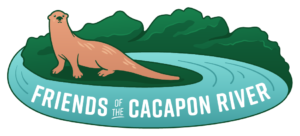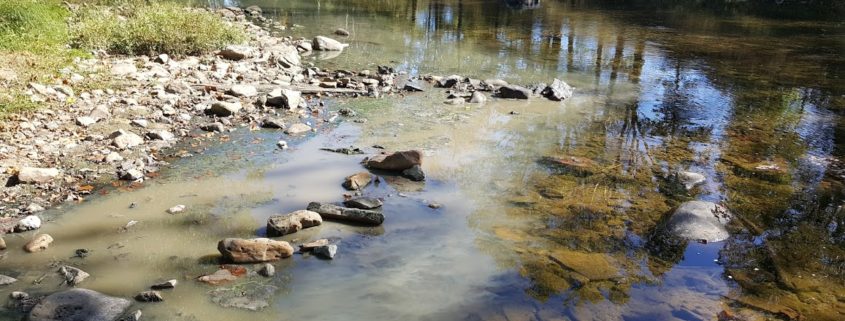Cacapon River Polluted in Capon Bridge, WV
The Waste Water Treatment Plant in the Town of Capon Bridge, West Virginia, was malfunctioning and releasing pollution—in the form of alarming levels of fecal coliform, discolored effluent, excess chlorine, and floating solid waste—directly into the Cacapon River for almost two years. At one point, the levels of fecal coliform were 300 times the allowable limit, causing many to fear for the health of the Cacapon River and the safety of those who swim, fish, and kayak in the river.
Over the past two years, the West Virginia Department of Environmental Protection (DEP) issued the Town of Capon Bridge eight violations for this pollution. In April, DEP filed a lawsuit against the town to force it to comply with its environmental regulations and improve the water treatment plant in a timely manner.
The exact cause of the plant’s malfunction has been heavily debated: Some argued excess grease from the town’s restaurants; some pointed to the town’s expanding population; others said it was the result of the local school children using the restrooms at lunch time; and an environmental engineer’s assessment pointed to cracked plant infrastructure that allowed excess rain water into the plant. However, it was probably a combination of all these factors, among others, that created the problem.
The water discharged from the plant is being tested monthly by the Upper Potomac Riverkeeper Brent Walls and by the plant’s manager. Thankfully, the plant has been functioning properly since March and the fecal coliform levels have returned to normal for the time-being.
What caused the dramatic improvement? It’s likely the result of the Town of Capon Bridge hiring EarthTec Environmental Services to manage plant operations as well as new plant manager. Regardless of the recent improvements, the water quality at the plant will need to be monitored for the foreseeable future.
WHAT WE’RE DOING TO HELP
Our beloved Cacapon River is a local and state natural treasure—a unique, healthy ecological wonder that’s full of life and beauty. We are fortunate that this level of pollution in the river is rare. Yet, this event has reminded us not to take the clean waters of the Cacapon River for granted.
The Friends of the Cacapon River is actively working with the local volunteer group, Keep the Cacapon Clean, which was created by Tim Reese of Taproot Farm in response to the pollution, and our other partners to establish a volunteer-driven water testing program at the Capon Bridge Water Treatment Plant. We also hope to expand the effort to include the water treatment plants in Great Cacapon and Wardensville—which also release into the Cacapon River.


